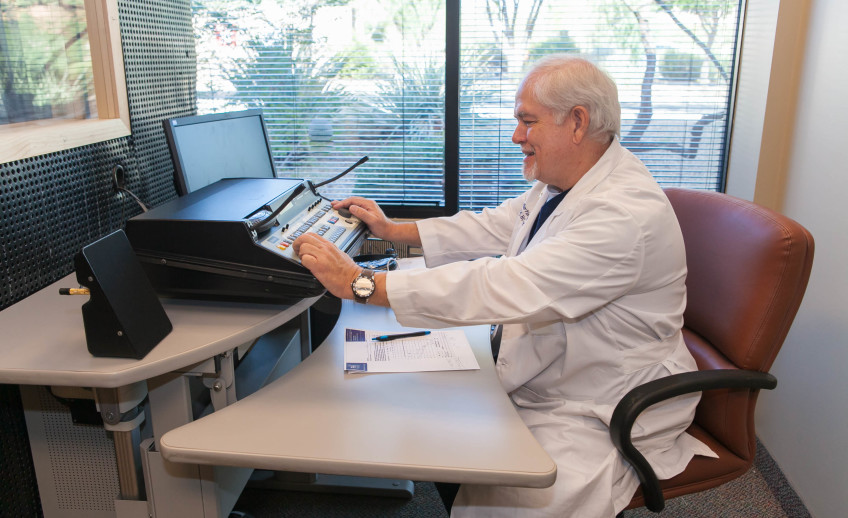What is a Hearing Aid Evaluation?
We offer for residents of Fountain Hills specialized hearing aid evaluations – put simply, a hearing test. This is the first thing to be done if you are a new patient. Like any medical checkup, the process consists of a number of general tests designed to rigorously map out the quality of your hearing, and to find any signs of potential problems before they start impeding on your daily life.
We understand that a hearing aid evaluation is not as common as other procedures. As such, we would like to walk you through the steps so that you can be more knowledgeable and, thus, comfortable about the process.
The first half, called pre-evaluation, consists of the following:
1) Background information
You will be given a series of questions about your medical history and other general information. This helps us to more accurately interpret subsequent test results. Rest assured that your information will be kept in the strictest confidentiality.
2) Pure tone average (PTA)
Also referred to as a pure tone conduction test, it determines the softest tones you are able to hear at a set of different frequencies. You will be given a pair of earphones to wear, and be asked to respond (such as raising your finger) upon hearing. The results across these frequencies are averaged to give a result.
3) Speech testing
Similar to the pure tone tests, a key component of speech testing is speech reception threshold (SRT), determining the faintest speech that can be heard half of the time. This works in tandem with the pure tone tests to better confirm its accuracy. There are also tests on your ability to recognize and repeat back clearly spoken words – either individual, two syllable words, or in the context of sentences. Tests are conducted in both quiet and noisy, i.e with background noise, situations to give a complete representation of daily life scenarios.
The second half of the hearing aid evaluation is the post hearing aid fitting. In a nutshell, it’s the stage where we introduce the hearing aid and tune it to fit your unique, individual needs.
1) Counseling
This is the time to ask any questions you may have. We want you to be satisfied, so let us know what exactly it is you want in your treatment. It bears noting that hearing aids will not restore normal hearing, but are instead tools that support impairments; however, with time, one adapts and gets used to it as part of their daily life.
Additionally, should you agree to proceed, we will take earmold impressions to find the right fit for you.
2) Fitting
The fitting process is both surgical and ongoing. Firstly, the correct type is selected and its settings are adjusted according to your results – notably, your MCL and UCL. Once the aid is placed inside your ear, unless you choose to use a model that does not require it, there will be a few preliminary tests to confirm that it works as intended, and according adjustments if otherwise. These are done over at least two weeks, one meeting per week.
We will let you know in full of what your new hearing aids can and cannot do; how to operate them; and any warranty information. We will also suggest local support groups that you may wish to visit as you transition through this new stage of your life. Don’t worry about getting it all down the first time – we’ll supply it in written form as well.
3) Post fitting
Give us feedback on how you’re doing! Let us know what you like and dislike about your hearing aids, and we will make changes to accommodate until they’re perfect. A key part of post fitting is soundfield tests, which are basically PTAs and speech tests, to ensure their effectiveness.
It is recommended to keep in touch for another four to six weeks, not just for the above adjustments, but also for additional counseling if needed.
You won’t need to stop taking your prescribed medication, if any – it should not interfere with any of the aforementioned tests. Just let us know of it when you fill out your personal information. All in all, the hearing aid evaluation is thorough, but certainly not alien or even intimidating. If you feel that you need one, it’s best to get yourself checked, because you might be on to something. It’s always best to detect problems before they develop, especially when it involves such an important part of your life as your ability to listen.
